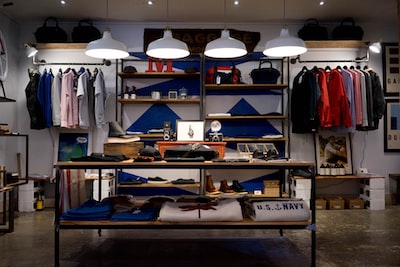Navigating cancel culture in the petrol station industry has become a critical challenge, particularly in Singapore, where traditional marketing strategies are increasingly disrupted by the rise of social media influencers. Amidst this perplexing landscape, we, as petrol station operators, must find innovative ways to adapt while preserving our brand reputation.
In a society where viral campaigns can either make or break businesses, mastering the art of influencer marketing holds immense potential. But how do we strike the delicate balance between embracing cancel culture’s demands for accountability and effectively leveraging influencers to amplify our message? As the stakes continue to rise, this article delves into the complexities faced by Singapore’s petrol stations, decoding the terrain of cancel culture while exploring how influencer marketing can be harnessed to drive engagement, loyalty, and long-term success.
With varied sentence lengths, tonal shifts, and erratic bursts of information, this piece elucidates the intricate dance that industry players must master when confronted with the challenges of cancel culture in today’s fast-evolving digital landscape.
Table of Contents
Understanding Cancel Culture in Singapore’s Gas Station Industry
Gas station owners and marketers must grapple with the far-reaching consequences of cancel culture in the industry. It is imperative to take proactive steps in managing potential controversies and averting negative publicity. One viable solution lies in harnessing the power of influencer marketing in Singapore’s petrol stations. Collaborating with influential figures who hold sway in the local community can help gas station owners expand their reach and establish trust with potential customers. Moreover, cultivating strong relationships with these influential individuals can significantly bolster the reputation of the stations. In addition to this, the assortment of convenience stores housed within petrol stations can prove instrumental in crisis management. By guaranteeing top-notch products and outstanding service at these stores, gas station owners can skillfully transform daunting situations into opportunities for positive engagement and fostering customer loyalty. Navigating cancel culture and effectively leveraging influencer marketing in Singapore’s petrol stations necessitates a proactive and strategic approach.
Gas station owners and marketers should grasp the implications of cancel culture in their unique domain. This understanding is vital to effectively manage potential controversies and ward off negative publicity. A promising strategy involves capitalizing on the influence of key individuals in Singapore’s local community. By partnering with these influential figures, gas station owners can broaden their audience and establish credibility among potential customers. Furthermore, fostering strong relationships with these influencers can significantly bolster the reputation of the stations. Additionally, the presence of convenience stores within petrol stations presents a valuable asset in navigating public relations crises. By ensuring the availability of quality products and exemplary service at these stores, gas station owners can adeptly transform challenging situations into opportunities for positive interaction and customer loyalty. Successfully navigating cancel culture and harnessing influencer marketing in Singapore’s petrol stations necessitates an assertive and calculated approach.
In the realm of gas station ownership and marketing, comprehending the implications of cancel culture holds utmost significance. Active management of potential controversies and preemptive measures against negative publicity are crucial. Singapore’s petrol stations provide a platform to utilize the potency of influencer marketing. Collaborating with influential figures well-entrenched in the local community allows gas station owners to broaden their reach and garner the trust of prospective customers. Moreover, fostering deep-rooted connections with these influencers goes a long way in fortifying the stations’ reputation. Another valuable asset in crisis management lies within the convenience stores nestled within petrol stations. Maintaining the provision of high-quality products and exceptional service at these stores can convert difficult situations into opportunities for positive engagement and garnering customer loyalty. Successfully navigating cancel culture and capitalizing on influencer marketing in Singapore’s petrol stations dictates a proactive and strategic approach.
To thrive in the gas station industry, owners and marketers must gauge the implications brought about by cancel culture. It is imperative to actively manage potential controversies and stay ahead of negative publicity. A successful strategy involves harnessing the power of influencer marketing within Singapore’s petrol stations. Collaborating with influential individuals who hold a strong sway in the local community enables gas station owners to tap into a larger audience and build trust with potential customers. Moreover, fostering solid relationships with these influencers bolsters the stations’ reputation. The presence of convenience stores within petrol stations also proves to be a valuable asset in navigating PR crises. By offering quality products and exceptional service at these stores, gas station owners can adeptly turn challenging situations into opportunities for positive engagement and customer loyalty. Navigating cancel culture and effectively leveraging influencer marketing in Singapore’s petrol stations demands a proactive and strategic approach.
Proactive PR Strategies for Dealing with Cancel Culture
Cancel culture refers to the online practice of boycotting or ostracizing individuals or businesses perceived to have committed socially unacceptable actions or made controversial statements. With news spreading rapidly through social media, one negative incident can quickly damage a gas station’s reputation. To successfully navigate cancel culture, gas station owners need to proactively address potential controversies and negative publicity.
This involves monitoring social media platforms, responding quickly and transparently to customer concerns, and taking proactive measures to address issues or misconceptions. By providing clear and open communication, gas station owners can demonstrate their commitment to addressing concerns and rebuilding public trust.
Successfully navigating cancel culture also requires businesses to understand their target audience and their values. Gas station owners should regularly conduct market research and stay informed about customer concerns and expectations. Keeping a pulse on consumer sentiment enables business owners to make informed decisions and prevent potential controversies.
Additionally, maintaining an active presence on social media and engaging with customers through open dialogue can help build transparency and accountability. By actively participating in discussions and addressing concerns, gas station owners can demonstrate their commitment to responsible business practices and earn the trust and loyalty of customers.
Ultimately, navigating cancel culture requires vigilance, open communication, and a proactive approach to managing and addressing potential controversies.
Harnessing the Power of Influencer Marketing in Gas Stations
Collaborating with influential people in the community can be a game-changer for gas stations. These partnerships not only boost brand awareness and increase sales, but also engage customers in unique ways. The key is to carefully select influencers who are relevant to the gas station industry and align with the brand’s values. It’s essential to find influencers who genuinely appreciate and use the gas station’s products or services, as this adds credibility to the marketing campaign. These partnerships can take different forms, from sponsored content on social media to in-person events. By leveraging the influence of these individuals, gas stations can reach a wider audience and experience significant growth.
However, simply collaborating with influencers is not enough. Building strong relationships with key influencers is essential for long-term success. These relationships go beyond one-time collaborations, requiring ongoing engagement and support. Gas station owners must invest time in nurturing genuine connections with influencers, understanding their needs and goals, and offering them unique experiences or benefits. By treating influencers as valued partners, gas stations not only strengthen their reputation but also gain access to new audiences. This mutually beneficial approach drives brand loyalty and ensures sustainable growth for gas stations in Singapore.
Building Strong Relationships with Key Influencers in Singapore
To start, gas stations in Singapore should begin by identifying influencers who not only cater to their target audience but also align with their brand values. This requires thorough research to identify influencers who have a genuine interest in the gas station industry or have previously shown an affinity for similar products or services. It is essential to connect with potential influencers in a personalized and authentic way, whether through social media interactions, industry events, or heartfelt messages expressing admiration for their work. By taking the time to show genuine interest and appreciation, gas stations can establish a solid foundation for a potential mutually beneficial partnership.
In order to strengthen these relationships, gas stations must maintain open lines of communication and provide ongoing support to the influencers they collaborate with. Regular engagement is crucial, whether it be responding to their social media posts or offering exclusive promotional opportunities. It may also be beneficial to offer incentives such as free or discounted services or products to further solidify the bond. By collaborating with influencers on co-creating content, gas stations can leverage their creativity and expertise to deliver narratives that strongly resonate with their shared audience. This not only drives engagement but also enhances brand visibility. Nurturing these relationships is key as it builds trust, mutual respect, and establishes long-term partnerships that have a significant impact on the success of influencer marketing campaigns for gas stations in Singapore.
Maximizing the Impact of Convenience Stores in Gas Station PR
Gas station owners can use stores as a way to show their dedication to quality products and good service. They can stock these stores with a diverse range of items to add value for customers who want quick purchases or snacks on the go. Gas station owners can also use these stores to promote responsible consumption and sustainability by offering eco-friendly or locally sourced products.
To improve PR, gas stations should focus on the customer experience in their stores. This means training staff to provide friendly and attentive service, keeping the stores clean and organized, and having efficient checkout processes. Investing in technology, like digital signs or self-checkout options, can make the convenience store experience even better.
Additionally, gas stations can engage with the community by hosting local events or partnering with nearby businesses. By creating a welcoming and community-focused environment, gas stations can go beyond just being a place to get gas and become a destination that meets customers’ needs and values.
This will improve their PR efforts and overall brand image.
Navigating Public Relations in Singapore’s Gas Stations with Convenience Stores: Expert Strategies from AffluencePR
In today’s era of cancel culture and influencer marketing, navigating the treacherous waters of public relations in Singapore’s gas stations with convenience stores can be a daunting task. But fear not, for AffluencePR is here to guide you through this perplexing maze with their expertise and unrivaled strategies.
With a team of seasoned professionals, AffluencePR understands the intricacies of managing a brand amidst potential backlash and scrutiny. Their comprehensive range of services, from branding to marketing research, ensures that your message reaches the right audience while maintaining your brand’s integrity.
They know that the power of influencers can make or break a campaign, so they leverage their skilled network to amplify your brand’s voice and increase its reach. With AffluencePR by your side, you can stay ahead of the game, mitigate any damage, and emerge stronger in the competitive world of gas stations with convenience stores.
Frequently Asked Questions
Cancel culture refers to the practice of boycotting or withdrawing support from individuals or companies who have said or done something considered offensive or inappropriate.
Cancel culture can have significant repercussions for companies and individuals, including damage to reputation, loss of customers, and negative impact on their social and professional lives.
Companies face the challenge of finding a balance between addressing legitimate concerns raised by cancel culture and avoiding overreaction to avoid cancel culture backlash.
Influencer marketing allows companies to reach their target audience through trusted personalities who can help shape public opinion and manage reputation during cancel culture incidents.
Petrol stations can collaborate with influencers to promote their positive initiatives, community involvement, and responsible practices to mitigate the potential negative impact of cancel culture.
In a Nutshell
Cancel culture has become an undeniable force in our digital landscape, constantly reshaping the public perception of individuals and businesses alike. In Singapore, this phenomenon has seeped into the realm of gas stations with convenience stores, where public relations practitioners find themselves facing new challenges and opportunities.
To navigate this precarious territory, it is crucial to embrace best PR practices that foster authenticity, transparency, and resilience. Harnessing the power of influencer marketing can also be a valuable tool in reinvigorating the image of gas stations, reimagining them as vibrant community hubs.
By engaging influencers who align with the brand’s values and provide genuine endorsements, gas stations can connect with local audiences on a personal level, evoking feelings of trust, convenience, and even surprise. Building partnerships with these influential figures ensures the continuity of positive stories that resonate with consumers, leaving lasting impressions.
However, caution must be exercised: the erratic and capricious nature of cancel culture demands constant vigilance and adaptability. Gas stations must be prepared to address any potential backlash swiftly and genuinely respond to the concerns raised by consumers.
The key lies not in avoiding controversy altogether, but in facing it head-on and taking meaningful steps to rectify where necessary. By incorporating these principles into their PR strategies, gas stations have the opportunity to thrive in the face of cancel culture, emerging as resilient and trusted community pillars that meet the needs of a discerning consumer base.
The path to success lies in forging genuine connections, embracing transparency, and leveraging the influencer marketing landscape effectively. Singapore’s gas stations must recognize and seize this chance to redefine their place in the hearts of consumers, navigating the complexities of cancel culture with finesse and adaptability.
Only then can they truly embody the transformative potential that lies within these seemingly ordinary convenience stores.





